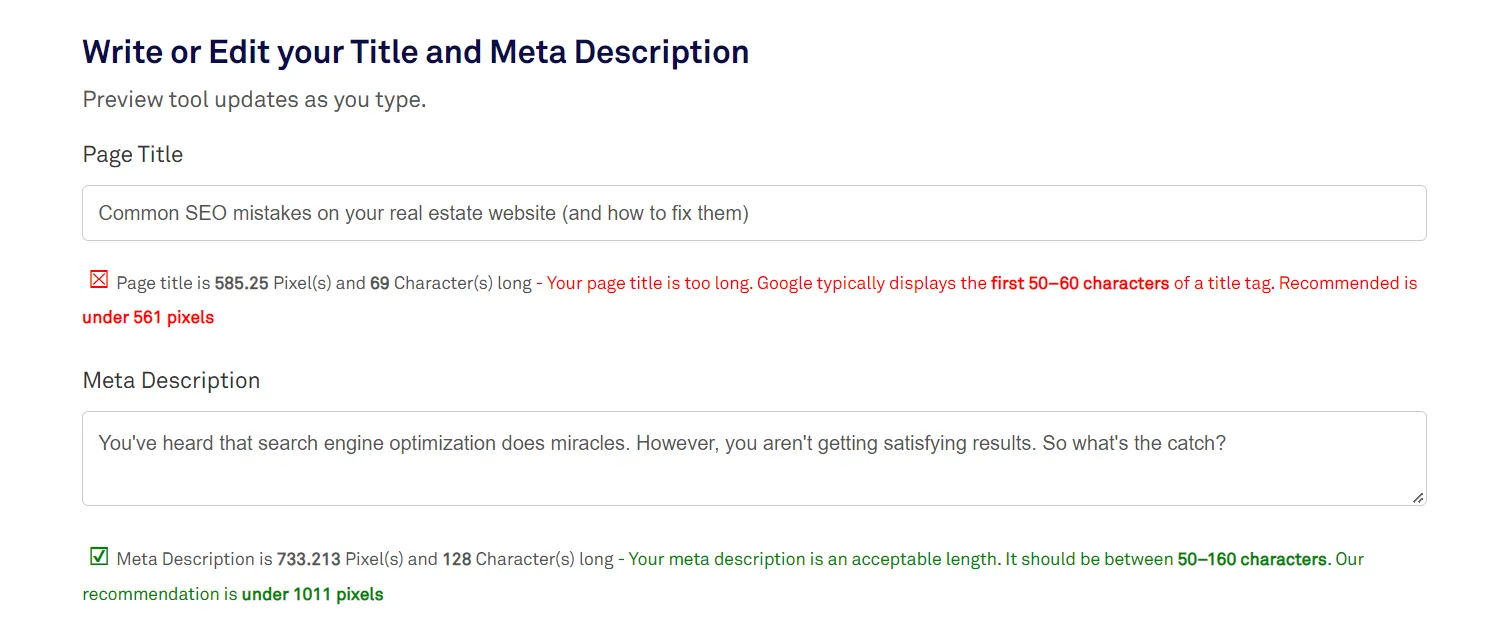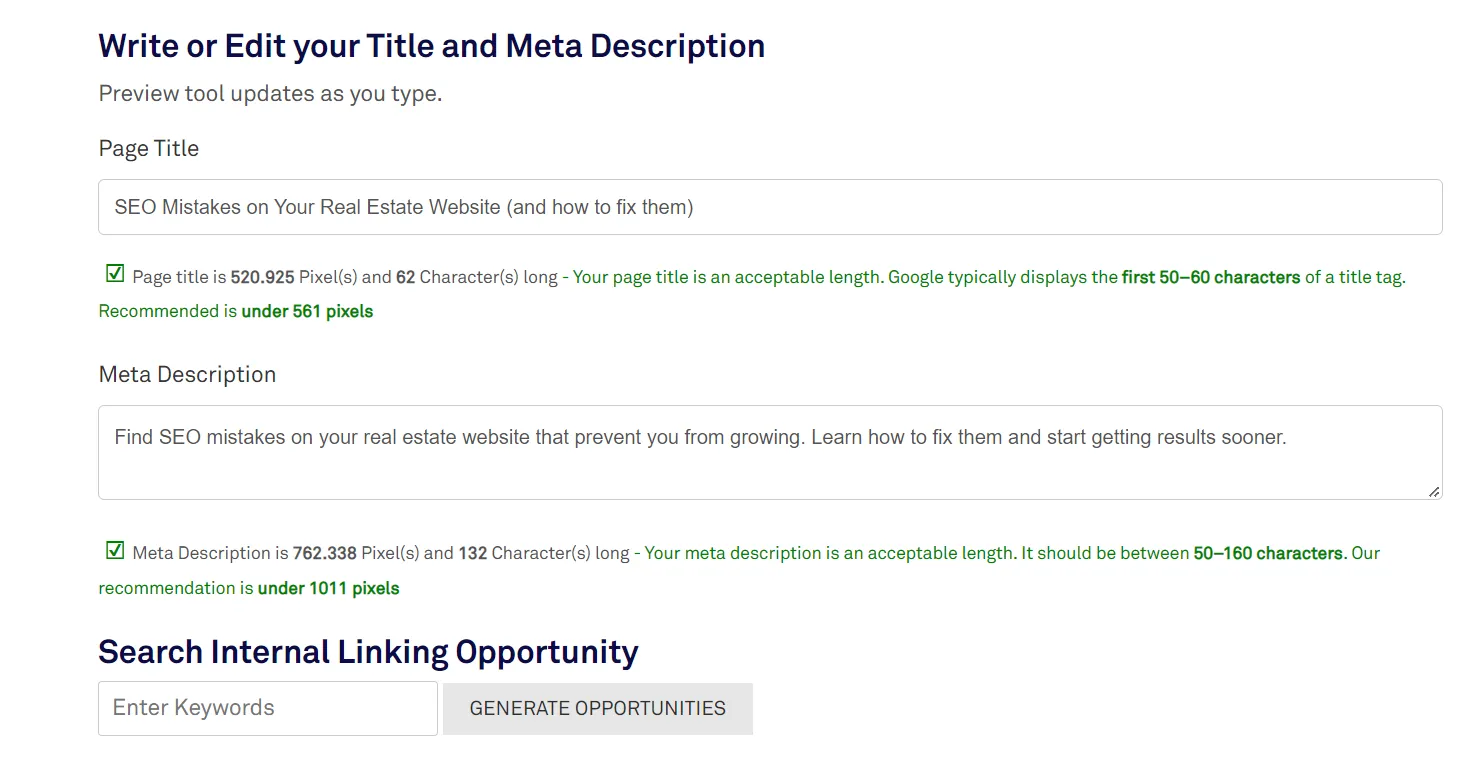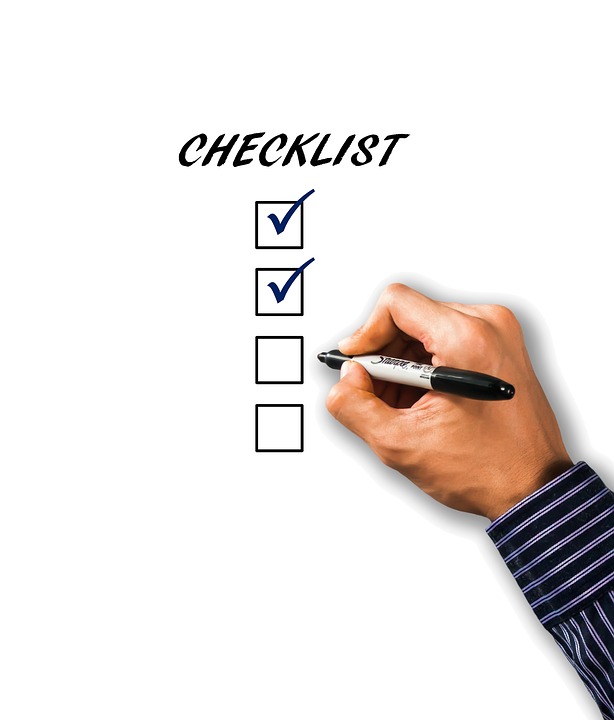You’re aware of the many benefits of search engine optimization and have put some strategies into place. However, you aren’t getting satisfying results. So what’s the catch? Why is your real estate website underperforming?
People make these common SEO mistakes without even realizing it! As a result, they’re likely losing out on valuable leads that could be coming to their website.
In this guide, we’ll show you how to fix them so you can start getting more traffic and conversions from your site.
Table of Contents
Having Little Low-Effort Content
Yes, keywords matter, and your website design must be based on them. But the content you produce mustn’t be short and plain. You have to engage your target audience with relevant pieces of information. Blog posts and landing pages should answer your clients’ questions and they can’t do this with 200-300 words. Note that you should never create posts for search engines, but for live human beings. Make sure your content is interesting, relevant, and well-written in addition to being optimized for Google.
Producing long high-quality content can be challenging, but it’s much more rewarding in the end. If you conduct thorough research and mention everything that’s relevant, you shouldn’t have much trouble reaching a higher number of words. And people that aren’t keen on writing can always hire outside help. Outsourcing your marketing efforts can leave you room to focus on other tasks relating to your business growth.
Not only your real estate website will it be a relevant and trustworthy source of information but, with longer content, it will bring much more traffic. Simply because longer articles rank higher than shorter ones. Once you get on the first page of Google, you’ll be able to grow your business and get way ahead of your competitors.
Forgetting about Meta Tags
Since metadata doesn’t directly affect ranking as keyword optimization does, many people forget about it. However, meta tags have huge effects on website traffic, engagement, and bounce rates. Meta tags show you how your real estate website appears on search engine result pages. You want to present your content interestingly enough, so people are more likely to click on it. We don’t mean you should click-bait people! That’s terrible for your bounce rate. We want to encourage people to visit your website and stay there.
So how do you write good meta tags? Simple be honest about what your website contains and be straightforward. Writing unique on-point descriptions, shouldn’t take more than 5 minutes of your time, and it takes even less for web designers to implement them. You also have lots of free online tools to check if the length of your meta is adequate.
Consider the following:
- Meta title – the name of your page – should contain your main keyword and be around 60-70 characters.
- Meta description – words below the title – is the summary of the page. It should also contain your target keyword and have up to 150 characters. Note that you must deliver what you said in your meta description. If your page doesn’t have the promised content, website visitors will quickly leave and you’ll have a bigger bounce rate.
I checked the title and description of this page using Ardor Metadata Checker, and it found some issues with my metadata:

After I reworked the title and description, the tool shows that everything is ok. Easy fix!

This tool also helps finding internal linking opportunities, but it’s a subject of a separate article.
If you’re looking for more real estate marketing tools, please check this list of the best real estate marketing apps and software.
You should also keep an eye on your website’s URL for each page. Ideally, it should also include your target keyword, be unique and describe the page with enough information.

Not Having Images and Alt Text
We don’t have to explain why images are important. In the real estate business – pictures sell! They also help readers to easily go through the content since they break large blocks of text. You don’t have to overflow the page with images – this isn’t the point. Having one image for every 500 words can sufficient enough.
Most real estate websites don’t forget about images, but alt text is often omitted. You should have alt tags with a relevant keyword for every image on the page. This will surely affect your rankings and boost traffic rates.
Bad Link Network
Link building is, with keyword mapping, one of the most important SEO strategies that all real estate agents should follow. If you’re not seeing progress with your website, the cause might lie in a bad link network on your website.
There are 3 types of essential links your real estate website should have:
- Internal links. Internal linking structure is crucial for your site visitors because it allows them to quickly navigate and go from your home page to the listings, blog content, etc. A responsive design provides a better user experience and also leads higher ranking.
- External links. You shouldn’t link just to your other pages and listings, but to external websites too. Outbound links also influence the website’s rating, but it’s more important for building trust with potential clients. You’ll be providing readers with some great resources and help them find more details about their questions on other websites. Naturally, you shouldn’t link to other real estate business owners, but to authority pages that aren’t your direct competitors.
- Backlinks. A common (and huge!) mistake is forgetting about backlinks – links from other (trustworthy) websites to your page. Backlinks are important because they show Google that the information on your website is very valuable since others are linking to it. Each backlink is a “vote” in favor of your page and the more you have – the better your rankings are. So to get organic traffic from search results, you must cooperate with other websites and get those backlinks as soon as possible.
Not Having Images and Alt Text
We don’t have to explain why images are important. In the real estate business – pictures sell! They also help readers to easily go through the content since they break large blocks of text. You don’t have to overflow the page with images – this isn’t the point. Having one image for every 500 words can sufficient enough.
Most real estate websites don’t forget about images, but alt text is often omitted. You should have alt tags with a relevant keyword for every image on the page. This will surely affect your rankings and boost traffic rates.
Bad Link Network
Link building is, with keyword mapping, one of the most important SEO strategies that all real estate agents should follow. If you’re not seeing progress with your website, the cause might lie in a bad link network on your website.
There are 3 types of essential links your real estate website should have:
- Internal links. Internal linking structure is crucial for your site visitors because it allows them to quickly navigate and go from your home page to the listings, blog content, etc. A responsive design provides a better user experience and also leads higher ranking.
- External links. You shouldn’t link just to your other pages and listings, but to external websites too. Outbound links also influence the website’s rating, but it’s more important for building trust with potential clients. You’ll be providing readers with some great resources and help them find more details about their questions on other websites. Naturally, you shouldn’t link to other real estate business owners, but to authority pages that aren’t your direct competitors.
- Backlinks. A common (and huge!) mistake is forgetting about backlinks – links from other (trustworthy) websites to your page. Backlinks are important because they show Google that the information on your website is very valuable since others are linking to it. Each backlink is a “vote” in favor of your page and the more you have – the better your rankings are. So to get organic traffic from search results, you must cooperate with other websites and get those backlinks as soon as possible.

Not Having Area Specific Pages
It isn’t a secret that every real estate agent puts the focus on location. After all, buyers and sellers always search for houses based on the location of the listings. It’s only natural that the best real estate websites are well structured with listings sorted by cities/areas/neighborhoods. Even more user-friendly would be having separate pages for each neighborhood. You’d be truly informative for visitors when you pile together every listing, guide, and following content for a specific area on one page.
A great landing page for one neighborhood allows you to use local keywords and target clients who are looking for houses in that specific area. Provide detailed information on the entire town (not just the house in question), utilize the power of Google maps, and show your prospects everything they want to know for making a purchase. Add with a direct call to action on each page and your lead capture potential will skyrocket.
Limiting SEO to the Website
It’s great that your website is optimized, but all of the real estate website tips in the world can’t help you if you neglect your social media pages and email marketing nurturing. When you realize that 4.2 billion people are using social media, you’ll see that buyers and sellers aren’t just browsing Google to find their house.
If you still need convincing, here are some more eye-opening social media statistics:
10 Social Media Statistics You Need to Know
How can you use social media and your community pages to increase traffic on your website? Start by:
- Optimize your profile with detailed contact information (phone number and address), listings information (links to each house currently on the market), and client testimonials (word of mouth does wonders!).
- Promote but not overpromote yourself. Social media users don’t like seeing a bunch of sales pitches on their feed, so don’t be salesy and make your posts interesting.
- Share your blog content in multiple forms – create tweets from it, snippets, photos, infographics, videos. You can present information in more ways than one to keep it nice and interesting.
- Interact with people, a lot. Respond to every message and comment, ask questions, and start discussions. You want to strengthen the bonds with potential clients and build relationships.
- Have indirect calls to action that will bring visitors to your website. Better yet create a lead generation strategy. For example, offer free guides, videos, and webinars to get people’s email address for your nurture campaign.
- Be consistent. Don’t share 10 things in one day and then nothing for 2 weeks. Instead, stay consistent with your online presence. If you post once a week, make sure to do it every week.

Fix the Mistakes One Step at the Time
Now you see what are the most common mistakes that realtors make regarding their sites and blogs. So are you ready to fix them? Sure it might seem frightening doing it all at once, but you can follow our guide one step at a time. It’s just important to start fixing your website today.
If you need help, we’ll gladly offer our expertise to get you more leads. We’ve worked with a ton of realtors and showed them the power of local SEO. Just get in touch and become the best real estate agent in your town.
